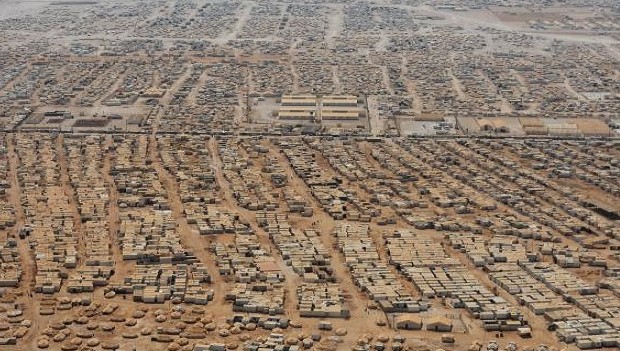Last month, I had the privilege of being appointed as a Minister of State at the Foreign & Commonwealth Office, having previously been Minister for the London 2012 Olympics. My portfolio includes the Middle East, and I write this article as I return from my first official visit to the region, having visited Israel, the Occupied Territories, and Jordan.
I hardly need tell the readers of this newspaper of the many diplomatic challenges posed by the political landscape of the Middle East. However, in terms of human suffering, none is more important or more troubling than the appalling conflict in Syria. Some 6.5 million people still inside the country have been driven from their homes, and more than two million more have been forced to flee Syria itself. On Thursday, I visited the huge refugee camp at Zaatari. Home to around 80,000 people, it has the dubious distinction of now being the fourth largest community in Jordan. It is dreadful to say this, but in some respects they are the lucky ones—they have found safety in a camp where at least some of their needs can be met. For too many other refugees, trapped inside Syria as winter approaches, the immediate future holds the prospect of particular suffering and misery: cold, hungry, wretched.
I believe that the international community does not give enough recognition to the authorities in countries such as Jordan, Lebanon, Turkey or Iraq for the tireless efforts they have made, at huge cost, to look after these refugees in their time of need. I am very conscious that a country such as the United Kingdom is, ultimately, free to decide whether or not to offer humanitarian assistance. We do so because of the moral imperative, and I am immensely proud that the UK has in fact donated more aid for Syria than any other such cause in our past: half a billion pounds (USD 800 million) so far. But Syria’s neighbors have not had the luxury of such a choice. They have had to cope with the reality of 2.2 million people seeking refuge from the violence that was unleashed when Assad decided to gun down peaceful protesters in 2011.
As I say, the United Kingdom has given a lot of money to assist the aid effort. Many other countries, not least across the Middle East, have also been very generous. The tragedy, however, is that no matter how much money is given, it is useless if the food, medicines, tents cannot reach the people who so desperately need it. The Assad regime has been responsible for many appalling acts but it is not just bombs, bullets and sarin gas that kill. Failing to let the international aid agencies, who are impartial and do not take sides, to deliver aid to where it is needed also kills people. The ability of the Organization for the Prohibition of Chemical Weapons inspectors to safely reach 21 out of 23 chemical weapons sites shows what can be done when the regime is truly prepared to make an effort. The frequent refusal or delay in issuing visas to foreign aid workers, from respected humanitarian agencies, shows they are all too often not prepared to make that effort. The latest dreadful news is that polio, so easily defeated by modern vaccines, is now reported to be spreading within Syria.
The international community needs urgently to work together to improve access for the aid workers. We in the UK are emphasizing to the moderate opposition that, no matter how difficult the circumstances on the ground, they must make every effort to ensure their forces do all that they can to assist the aid effort and allow full, safe and unhampered access for humanitarian workers. We trust the Russians will bring similar pressure on their friends in the regime, given the imperative for getting the aid through to innocent men, women and children. Baroness Amos, the UN’s Under-Secretary General, has been making determined efforts to improve access across Syria, and we offer her our wholehearted support.
However, the only real way to end this suffering is, of course, to seek an end to the conflict itself. Last weekend, the League of Arab States unanimously supported the Geneva II process—in other words, bringing the different parties together to negotiate a transition to a lasting political settlement, without Assad, that ensures equality and representation for all the many elements of Syrian society. This will not be easy, nor will it be quick, and the negotiations could take several months. But what are the alternatives? There is no prospect of either side securing a military victory. If we do not seize such opportunities—however difficult—to find a peaceful solution, we condemn the Syrian people to months, and perhaps even years, of further bloodshed and misery. On Thursday, in just one refugee camp, I saw for myself 80,000 reasons why the Syrian people so desperately need the chance offered by Geneva II.
